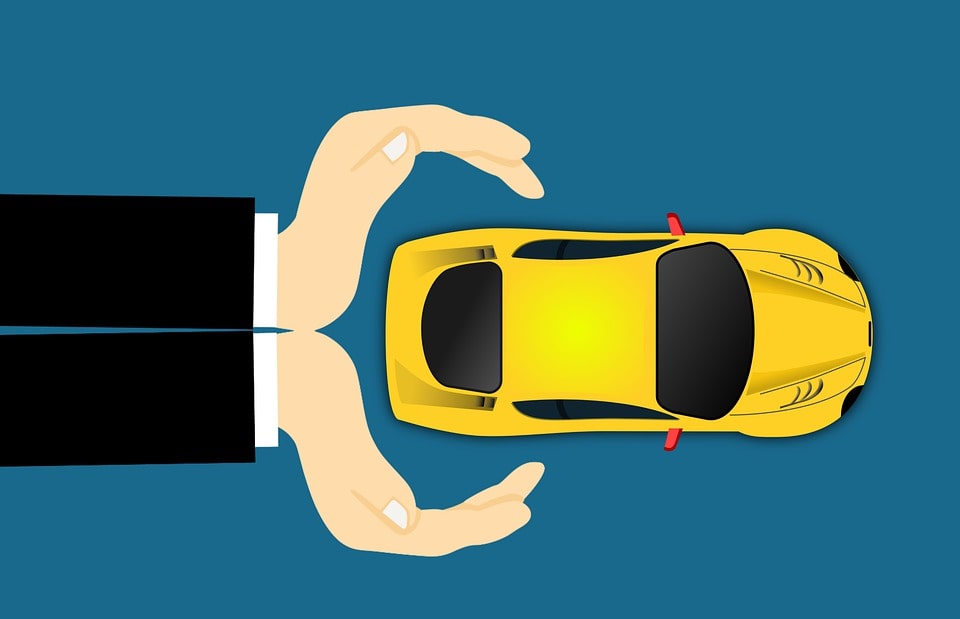Vehicle insurance, also known as auto insurance or car insurance, is a type of insurance policy that provides financial protection against physical damage or bodily injury resulting from traffic collisions or other incidents involving a vehicle. Vehicle insurance is typically required by law in most countries and is designed to protect drivers, passengers, and other individuals who may be involved in an accident.
Vehicle insurance policies can vary in terms of coverage and price, but typically include liability coverage, which covers damage or injury caused to other people or property; collision coverage, which covers damage to the insured vehicle in the event of a collision; and comprehensive coverage, which covers damage to the insured vehicle from other events such as theft, vandalism, or natural disasters.
It is important for vehicle owners to have insurance coverage to protect themselves and others in case of an accident, as the costs of vehicle repairs, medical bills, and legal fees can be significant.
How Many Types of Vehicle Insurance
There are several types of vehicle insurance available, each with its own specific coverage and benefits. Here are some of the most common types of vehicle insurance:
- Liability Insurance: Covers the cost of damage or injuries that you cause to others while driving your vehicle.
- Collision Insurance: Covers the cost of repairs or replacement if your vehicle is damaged in a collision with another vehicle or object.
- Comprehensive Insurance: Covers the cost of repairs or replacement if your vehicle is damaged in a non-collision incident, such as theft, fire, vandalism, or natural disasters.
- Personal Injury Protection (PIP) Insurance: Covers medical expenses and lost wages for you and your passengers in the event of an accident, regardless of who is at fault.
- Uninsured/Underinsured Motorist Insurance: Covers damages and injuries caused by a driver who is either uninsured or does not have enough insurance to cover the costs of the accident.
- Gap Insurance: Covers the difference between what you owe on your vehicle and its actual cash value if your vehicle is totaled in an accident.
- Roadside Assistance: Provides services such as towing, fuel delivery, and tire changes if your vehicle breaks down or you are stranded on the road.
The specific types of vehicle insurance available may vary depending on the insurance provider and the country or state where you live.
How to claim Vehicle insurance
If you need to make a claim on your vehicle insurance, you should follow these general steps:
- Contact your insurance provider: Notify your insurance company as soon as possible after an accident or incident that may be covered by your policy. Your insurance provider will guide you through the claims process and provide you with instructions on how to proceed.
- Provide necessary information: Provide your insurance company with all the relevant details about the incident, including the date and time, location, the name and contact information of any other drivers involved, and any witnesses. You will also need to provide your policy number and other personal information.
- Submit supporting documentation: To support your claim, you may need to submit additional documentation such as police reports, medical bills, and repair estimates. Your insurance provider will provide you with instructions on what information is required.
- Cooperate with your insurance provider: Your insurance provider may require you to complete additional forms or provide additional information to support your claim. Cooperate fully with your insurance provider to ensure a smooth claims process.
- Wait for a decision: After reviewing your claim, your insurance provider will make a decision about whether to approve or deny your claim. If your claim is approved, your insurance provider will provide you with instructions on how to proceed with the payment and repairs.
It is important to review your policy and understand your coverage before making a claim to ensure that you are eligible for reimbursement.
In what Circumstances Vehicle Insurance not insure your Vehicle
While vehicle insurance is designed to provide coverage in a variety of circumstances, there are certain situations where it may not provide coverage. Here are some common situations where vehicle insurance may not insure your vehicle:
- Driving under the influence: If you are driving under the influence of drugs or alcohol and get into an accident, your insurance policy may not provide coverage.
- Driving without a license or insurance: If you are driving without a valid license or insurance coverage and get into an accident, your insurance policy may not provide coverage.
- Intentional damage: If you intentionally cause damage to your own vehicle or to another person’s property, your insurance policy may not provide coverage.
- Racing or stunts: If you are using your vehicle for racing or stunts and get into an accident, your insurance policy may not provide coverage.
- Wear and tear: If your vehicle experiences normal wear and tear over time, your insurance policy may not provide coverage for the repairs or replacement.
It is important to review your insurance policy carefully and understand the terms and conditions of your coverage to ensure that you are covered in the event of an accident or incident.
What are the befits of Vehicle insurance
Vehicle insurance offers several benefits to vehicle owners, including:
- Financial protection: Vehicle insurance provides financial protection in case of an accident or other incident that causes damage or injury to your vehicle or others.
- Legal compliance: In most countries, it is mandatory to have vehicle insurance in order to drive legally on public roads.
- Peace of mind: Knowing that you have insurance coverage can provide peace of mind when driving, as you know that you are protected in case of an accident or other incident.
- Access to additional services: Many vehicle insurance policies include additional services such as roadside assistance, rental car coverage, and other benefits that can be helpful in the event of an accident or other incident.
- Lower repair costs: If your vehicle is damaged in an accident, your insurance policy may cover the cost of repairs or replacement, which can help reduce the financial burden of repairing or replacing your vehicle.
- Protection from uninsured motorists: If you are involved in an accident with an uninsured motorist, your insurance policy may provide coverage for damages and injuries caused by the other driver.
Overall, vehicle insurance is an important investment that can provide a variety of benefits and protections for vehicle owners.
What’s the disadvantages of buying Vehicle Insurance

While vehicle insurance provides several benefits, there are also some potential disadvantages to consider. Here are a few:
- Cost: Vehicle insurance can be expensive, especially for high-end or luxury vehicles. The cost of insurance premiums can be a significant expense for many vehicle owners.
- Coverage limitations: Some insurance policies may have limitations on coverage, such as exclusions for certain types of damage or coverage limits for certain types of incidents. It is important to understand the terms and conditions of your policy to ensure that you have adequate coverage.
- Deductibles: Most insurance policies have deductibles, which are the amount you are responsible for paying out of pocket before insurance coverage kicks in. High deductibles can be a significant financial burden in the event of an accident or other incident.
- Claim process: The process of making a claim on your insurance policy can be time-consuming and complex. It may require submitting extensive documentation and dealing with multiple parties, including insurance adjusters and repair shops.
- Premium increases: If you make a claim on your insurance policy, your premiums may increase in the future. This can be a significant expense over time and may discourage some vehicle owners from making claims even when they are eligible for coverage.
Overall, while vehicle insurance provides important protections for vehicle owners, there are also potential drawbacks to consider. It is important to carefully evaluate the costs and benefits of insurance coverage to determine whether it is a worthwhile investment for your individual situation.
How much it cost for Vehicle Insurance
The cost of vehicle insurance can vary widely depending on a number of factors, including:
- Type of coverage: The type of coverage you choose will have a significant impact on the cost of your insurance policy. Liability-only coverage is generally less expensive than full coverage that includes collision and comprehensive coverage.
- Vehicle make and model: The make and model of your vehicle will also impact the cost of your insurance policy. High-end or luxury vehicles typically have higher insurance premiums due to the cost of repair and replacement.
- Driving history: Your driving history, including any accidents or traffic violations, can impact the cost of your insurance premiums. Drivers with a clean driving record typically pay lower premiums than those with a history of accidents or violations.
- Age and gender: Younger drivers and male drivers may pay higher insurance premiums due to statistical data that indicates they are at higher risk of accidents.
- Location: The location where you park and drive your vehicle can also impact insurance premiums. Areas with higher crime rates or traffic congestion may result in higher premiums.
Given these factors, it is difficult to provide a specific cost for vehicle insurance. However, you can get a quote from an insurance provider by providing information about your vehicle, driving history, and other relevant details. It is a good idea to get quotes from multiple providers to compare coverage and pricing before choosing a policy.
What is Vehicle insurance
Vehicle insurance, also known as auto insurance or car insurance, is a type of insurance policy that provides financial protection against physical damage or bodily injury resulting from traffic collisions.
How Many Types of Vehicle Insurance
There are several types of vehicle insurance like Liability Insurance, Collision Insurance, Comprehensive Insurance and many more.
What are the befits of Vehicle insurance
Vehicle insurance offers several benefits to vehicle owners like Financial protection, Legal compliance, Peace of mind and many more.
What’s the disadvantages of buying Vehicle Insurance
While vehicle insurance provides several benefits, there are also some potential disadvantages to consider like time consuming, expensive, premium increase and many more.








